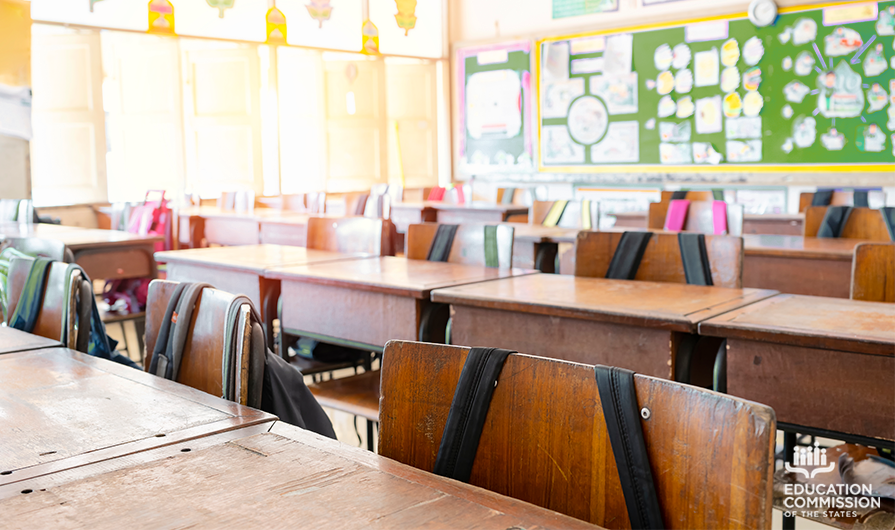As states grapple with how to respond and address public concerns about school safety, many have opted to create a task force or study committee to assess potential holes in the state’s safety framework. These appointed groups are charged with everything from studying school emergency plans to finding funding for new safety grants. The result is usually a report issued to the governor or legislature with recommendations for improvement or standardization.
 In 2018, 21 states initiated a task force to study school safety — perhaps in reaction to the school shootings at Marjory Stoneman Douglas High School in Florida and Santa Fe High School in Texas. After the Sandy Hook Elementary shooting in Connecticut in 2012, at least 12 states created task forces and are currently still working on implementing those proposed recommendations. The reports released since 2016 reveal some common action items:
In 2018, 21 states initiated a task force to study school safety — perhaps in reaction to the school shootings at Marjory Stoneman Douglas High School in Florida and Santa Fe High School in Texas. After the Sandy Hook Elementary shooting in Connecticut in 2012, at least 12 states created task forces and are currently still working on implementing those proposed recommendations. The reports released since 2016 reveal some common action items:
- Professionals in schools: School Resource Officers and Mental Health Professionals
Task forces consistently recommended putting more school resources officers and mental health professionals in schools. The Alabama Emergency Task Force on School Safety and Security released a list of key recommendations in late 2016 and emphasized the importance of SROs in ensuring school safety. The recommendations encouraged the legislature to prioritize more funding for SROs, with the goal of putting one in every school. In August 2018, Pennsylvania’s School Safety Task Force published its final report to Gov. Tom Wolf and noted it repeatedly received requests from participants to increase the number of mental health professionals in schools. The report recommended the governor increase access to mental health services in schools by strengthening existing statewide intervention programs and encouraging schools to develop partnerships with community organizations.
- Communication: Law Enforcement and Schools
Task forces consistently identified communication between law enforcement, schools, parents and students as a way to avoid and mitigate school safety emergencies. The Illinois Terrorism Task Force School Safety Working Group focused a majority of its recently released recommendations on information-sharing not only between schools and law enforcement, but also between schools and students. The working group advocated for school districts to share information on threats with law enforcement and law enforcement to share information necessary to protect student safety with schools. The group also recommended setting up a tip line for students to report information about possible threats. The Ohio School Safety Task Force similarly recommended setting up a tip line for students, and encouraged school and safety partners to create a communications system for clear reporting and exchange of information during an emergency.
- School Facilities: Physical Security
One of the most tangible recommendations seen in task force reports is updating and strengthening school building security measures. The Arkansas School Safety Commission listed a number of security strategies schools can adopt to enhance security, including creating a single entry point for the campus, installing bullet-resistant glass in classrooms, building exterior fencing and securing roof access. New Hampshire also highlighted facility security as a major concern in its 2018 report. The New Hampshire School Safety Preparedness Task Force recommended enhancing monitoring capabilities at schools, replacing keys with access cards and adopting best practice guidelines for new construction projects.






